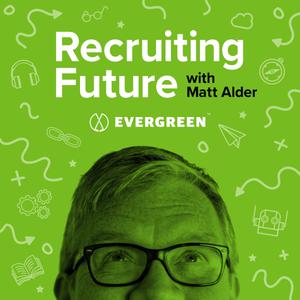
Recruiting Future with Matt Alder
Matt Alder
A podcast covering innovation in HR and Recruiting
- 27 minutes 17 secondsEp 671: Balancing AI & The Human Touch
Frontline hiring is more competitive than ever, with speed and efficiency now critical for success. However, the challenge doesn't stop at making the hiring process faster; employers also need to stand out from their competition by offering a high-quality candidate experience and having a recruiting process that allows them to showcase what makes their organization unique.
It's clear that AI-powered recruiting is already driving speed and efficiency in frontline hiring for many large organizations, but what's the right balance between technology and humans to deliver an exceptional candidate experience and highlight an organization's unique culture?
My guests this week are Sonja Breuer, Senior Vice President of Human Resources, and Aaron Einhorn, Senior HR Business Partner at Hamra Enterprises. In our conversation, they share how Hamra has successfully leveraged AI-powered recruiting technology to reduce their time-to-hire from 13 days to just 4. They also discuss how this has enabled them to better highlight the values, benefits, and culture that make Hamra Enterprises a uniquely attractive employer.
In the interview, we discuss:
- Hamra's unique culture and employee programs
- Using AI to radically reduce time to hire
- Maintaining a consistent and engaging candidate experience
- Combining conversational AI with purposeful human connections
- Why speed, experimentation, and agility are critical in AI-powered recruiting.
- What happens if the AI makes a mistake?
- Building a true partnership with their technology vendor to drive innovation.
- What does the future look like
Follow this podcast on Apple Podcasts.
28 January 2025, 2:37 pm - 1 hour 1 minuteEp 670: Jeff Taylor: Rethinking Hiring for the AI Age
It feels like Recruiting has come a long way since the days of help-wanted ads in newspapers, but are we genuinely innovating or just consistently repackaging outdated ways of doing things? For well over a century, versions of the resume and job ad have been the foundation of hiring, but as technology and work itself move on at an ever-increasing pace, it's clear these tools weren't designed for the world we are now in. So, can we finally move beyond them to build a solid foundation for an AI-powered approach?
My guest on Episode 670 is one of the original pioneers of online recruiting, Jeff Taylor, the founder of Monster.com, or the MonsterBoard as it was known back in 1994. Jeff built Monster during the infancy of the internet when the rest of the industry was still faxing resumes and placing ever more expensive ads in the newspapers. He introduced the world to online job postings and the resume database, which, very much to his surprise and increasing alarm, are still core tenets of recruiting 30 years later.
Jeff is now back in the industry and is launching a new business later in the year. In our conversation, we discuss the need for innovation and reinvention in recruiting to harness AI and address complex challenges employers now face.
In the interview, we discuss:
- Jeff and Monster's back story and what recruiting was like in 1994
- The early days of the internet and what helped Monster to scale to 100 million registered resumes
- Resumes and job postings have barely changed in over 100 years, and why this is now a big problem.
- How AI is reshaping recruitment without addressing its foundational inadequacies
- How employers are losing control of their own job postings
- Looking at the whole person and the growing importance of the personal brand
- What the future of hiring looks like when we put people, not processes, at the centre
- What's next for Jeff
Follow this podcast on Apple Podcasts.
22 January 2025, 7:13 pm - 30 minutes 23 secondsEp 669: How L'Oréal Group is Using AI To Evolve Talent Acquisition
With 1.5 million applications each year, L'Oréal Group's talent acquisition team faces challenges on a scale most organizations would never experience. Managing this volume while ensuring a high-quality candidate experience demands innovation, agility, and the right balance between humans and technology
AI plays a key role in L'Oréal Group's TA evolution, helping with screening and driving quality and efficiency via automation and standardization.
So, how do you use AI to transform talent acquisition without losing the vital human touch?
My guest this week is Michael Kienle, Global VP of Talent Acquisition at L'Oréal Group. In our conversation, Michael shares how his team is leveraging AI to improve the candidate experience and why he believes AI will help the TA teams of the future to radically increase the value they create for the business.
In the interview, we discuss:
- The growing complexity of talent acquisition
- L'Oreal Group's recruiting challenges
- The critical importance of candidate experience
- AI impacts the how but not the why or what
- The balance between humans and machines
- Standardizing skills
- Brandstorm, L'Oreal's unique business game and its impact on recruiting
- Increasing the value creation of TA
- How much change will we see in the next 12 months?
Follow this podcast on Apple Podcasts.
17 January 2025, 7:53 pm - 34 minutes 15 secondsEp 668: Strategic Budgeting For TA Leaders
Budgeting has long been challenging for talent acquisition teams, but the stakes have never been higher in today's volatile economic environment. Many TA leaders find themselves stuck in a cycle of defending past decisions, managing cuts, and struggling to align budgets with business strategy. Meanwhile, CFOs expect data-driven proposals, ROI insights, and long-term planning that TA teams often aren't equipped to deliver.
So, how can talent acquisition leaders transform their approach to budgeting, build trust with the C-suite, and position themselves as strategic business partners
My guests this week are Madeline Laurano, founder of Aptitude Research, and Joshua Secrest, VP of Client Advocacy at Paradox. We discuss Aptitude's new report, The Talent Acquisition Budget Playbook, which contains actionable strategies to move beyond reactive spending, harness automation for efficiency, and demonstrate clear ROI to unlock longer-term investment.
In the interview, we discuss:
- The background behind the report
- Some shocking stats about impending budget cuts, budget confidence, and wasted spend
- Getting maximum return and building credibility
- Thinking 3-5 years out
- How to demonstrate ROI
- Operations benefits versus financial benefits
- Speaking the language of the CFO
- The importance of automation and the results it delivers
- What does the future of TA look like?
Follow this podcast on Apple Podcasts.
16 January 2025, 1:17 am - 37 minutes 32 secondsEp 667: Traditional HR is Dead, Here's What's Next
HR is at a crossroads. The rapid pace of change, shifting employee expectations, and technological disruption have rendered traditional approaches ineffective. After years of being viewed as the department of policy and paperwork, HR must now become more agile, personalized, and human-centered to meet the challenges of the modern workplace.
So, how can HR and talent teams adapt to a world where change is constant, collaboration crosses boundaries, and employees demand relevance and impact from their work experiences? What practical strategies can HR leaders adopt to build practices that are genuinely fit for the future?
My guest this week is Lucy Adams, CEO of Disruptive HR. A self-described "recovering HR director," Lucy has firsthand experience of what holds HR back—and how to break free from outdated thinking. She shares her vision for transforming HR by moving away from paternalistic policies and embracing a more modern, adult-to-adult relationship with employees. Lucy also reveals practical ways HR can harness continuous learning and AI-driven insights to foster agility, collaboration, and innovation to ensure that HR is an effective force in shaping organizational success.
In the interview, we discuss:
- Making HR more relevant and impactful
- Agility, productivity, collaboration, and innovation
- Principles rather than policies
- The personalization of the employee experience
- Human-centered design
- How do organizations need to think differently about talent?
- Changing the structure of the talent function
- Talent Scouts and Career Agents
- Marketing, consulting, and technology
- What new skills are needed?
- What does the future look like?
Follow this podcast on Apple Podcasts.
12 January 2025, 10:14 am - 45 minutes 15 secondsEp 666: The ROI Of Employer Branding
Employer branding is often misunderstood or undervalued, especially in a landscape of shrinking budgets and rising expectations. Yet, in today’s competitive environment, the ability to measure and communicate its value is more critical than ever.
So, how can employer brand professionals quantify their impact in ways that resonate with the C-Suite? What strategies can they adopt to ensure their work aligns with business goals, drives meaningful results, and operates with the right level of sophistication?
My guest this week is Ben Phillips, Global Employer Brand Lead at Booksy. Ben explains why ROI conversations must be grounded in financial outcomes, not vanity metrics, and highlights the importance of aligning employer branding with the strategic priorities of the business. Drawing from his experience across consumer marketing, recruiting, and culture transformation, Ben shares practical approaches for demonstrating the tangible business value of employer branding.
In the interview, we discuss:
- Communicating the ROI of Employer Branding
- The five things the C-Suite cares about
- Forecasting ROI
- Degrees of separation from the P&L
- A financial conversation versus a cost-benefit one
- How is employer branding changing?
- Culture, EVP, experience, authenticity and trust
- The difference between consumer marketing and recruitment marketing
- What does the future hold, and what part will AI play?
Follow this podcast in Apple Podcasts.
11 January 2025, 11:00 am - 8 minutes 28 secondsRound Up December 2024
Round up is the monthly show on The Recruiting Future Podcast channel that highlights episodes you may have missed and gives you my take on some of the key learnings from the guests.
Episodes mentioned in this Round Up:
Ep 660: Recruiting Rewired by AI
Ep 661: Auditing AI For Fairer Hiring
Ep 662: Talent Acquisition On The Brink
Ep 663: Personalizing The Candidate Experience At Scale
Ep 664: Failure and Authenticity In Employer Branding
Ep 665: Aligning HR With Business Strategy
Follow this podcast on Apple Podcasts
7 January 2025, 11:52 pm - 24 minutes 52 secondsEp 665: Aligning HR With Business Strategy
In this disruptive time, HR and Talent Acquisition must be perfectly aligned with organizations’ business strategies. However, recent research from Eightfold AI and 3Sixty Insights highlights a significant misalignment between the two. This misalignment creates challenges that impact everything from hiring to employee satisfaction and ultimately negatively impact long-term organizational success.
So, why is this misalignment happening, and what can HR leaders do to address it? Could AI help bridge the gap and drive better outcomes for both HR and the wider business?
My guest this week is Teresa Wykes, Senior Director of Talent-Centered Transformation at Eightfold AI. Teresa shares valuable insights from the research, and we explore some of the root causes of the misalignment and assess potential solutions to the problem.
In the interview, we discuss:
- Business strategy development. C-Suite collaboration and talent strategy alignment.
- The extent and causes of misalignment of HR with the business
- The implications of prioritizing an administrative culture over strategic initiatives
- The crucial difference between being data driven and data literate.
- How HR is deprioritizing the activities that could help them achieve their objectives.
- Solving the problem
- The new skills needed in HR and Talent Acquisition teams
- Dealing with resistance to change
- What does the future look like?
Access the full report here - Aligning the Path Forward: How to Bring HR and Business Strategy Together.
Follow this podcast on Apple Podcasts.
29 December 2024, 7:53 pm - 31 minutes 29 secondsEp 664: Failure and Authenticity In Employer Branding
There has probably never been a more difficult time to work in employer branding. Survey after survey shows that employers consider it vitally important to have an effective employer branding strategy; however, employer brand functions and budgets have been scaled back significantly in the last two years.
So, how can employer brand professionals navigate this challenging landscape? What does it take to build meaningful strategies with limited resources, and how can failure and authenticity become tools for growth rather than obstacles?
My guest this week is Claire de Souza, co-founder of The EB Space and head of Employer Branding at a major UK retailer. Claire emphasizes the importance of learning from failure and why embracing vulnerability is critical to success. She also shares practical advice on demonstrating ROI, building strong stakeholder relationships, and aligning employer branding with business strategy.
In the interview, we discuss:
- The biggest challenges in employer branding at the moment
- Demonstrating ROI
- Being part of the puzzle
- Aligning goals and strategy with the company's needs and vision
- The importance of talking about failure
- Why technology is often used as a scapegoat
- Do employers have the fundamentals in place to innovate
- Building stakeholder relationships
- What does the future look like
Follow this podcast on Apple Podcasts.
23 December 2024, 5:18 pm - 30 minutes 1 secondEp 663: Personalizing The Candidate Experience At Scale
For years, a candidate experience that delivers truly personalized feedback at scale has been an unattainable dream for talent acquisition teams. Candidates have always wanted tailored feedback, advice, and the opportunity to ask questions, but the sheer volume of applications has made this impossible
So, is AI now revolutionizing the candidate experience and finally making mass personalization a reality? What does it take to create an ethical, transparent system that provides candidates with two-way interactions and personalized feedback, all while improving efficiency and reducing workload for TA teams?
My guest this week is Sam Dhesi, CEO of Popp AI. Despite only being 18 months old, Popp AI is already partnering with FTSE 100 companies and global staffing organizations. In our conversation, Sam shares real-world results on how AI enables conversational assessment, provides personalized candidate feedback, drives engagement, and vastly improves hiring efficiency.
In the interview, we discuss:
- How AI is changing the way employers interact with assess candidates
- Building in an ethically and responsible way
- The importance of human oversight and explainability
- Delivering constructive personalized feedback at scale
- Facilitating mass candidate engagement
- Using assessment via conversational AI as a replacement for the resume
- Which employers are doing all of this well, and what tangible results have they achieved
- What does the future look like? Where will hiring be in five years time?
Follow this podcast on Apple Podcasts.
20 December 2024, 10:46 pm - 26 minutes 48 secondsEp 662: Talent Acquisition On The Brink
The rapid evolution of AI is reshaping talent acquisition, but many TA teams are struggling to keep pace. While AI offers the potential to revolutionize processes, reduce friction, and improve candidate experiences, adoption rates remain low. At the same time, businesses are under pressure to boost productivity and efficiency, leaving TA teams vulnerable to being left behind—or worse, having changes imposed on them without their input.
So, how can talent acquisition leaders embrace AI and use it to align themselves with broader corporate objectives?
My guest this week is Adam Godson, CEO of Paradox, a pioneer in conversational AI for talent acquisition. Adam shares valuable insights from working with industry leaders like McDonald’s and Chipotle, exploring how AI is transforming recruitment at scale. He discusses how TA leaders can harness AI to future-proof their organizations, deliver tangible ROI, and create hiring systems that prioritize speed, efficiency, and better candidate experiences.
In the interview, we discuss:
- Developments over the last 12 months
- What are employers who use conversational AI for hiring achieving?
- How McDonalds reduce time to hire from 21 days to 3 days
- How AI is massively improving the candidate experience
- The use of AI in high-volume hiring gives us a glimpse into the future.
- AI adoption is being driven by its impact on the bottom line.
- The importance of good system and experience design
- What will TA teams of the future look like?
- The challenge of challenging recruiting norms
- The opportunity for TA Leaders
- What is going to happen in 2025
Follow this podcast on Apple Podcasts.
19 December 2024, 7:04 pm - More Episodes? Get the App
Your feedback is valuable to us. Should you encounter any bugs, glitches, lack of functionality or other problems, please email us on [email protected] or join Moon.FM Telegram Group where you can talk directly to the dev team who are happy to answer any queries.
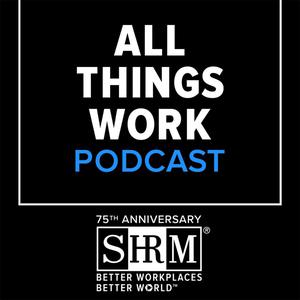 SHRM All Things Work
SHRM All Things Work
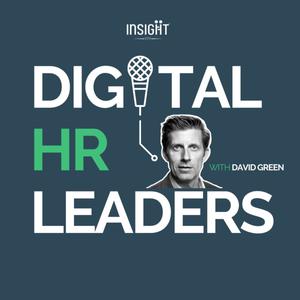 Digital HR Leaders with David Green
Digital HR Leaders with David Green
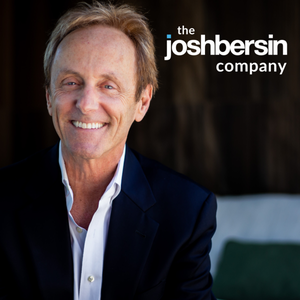 The Josh Bersin Company
The Josh Bersin Company
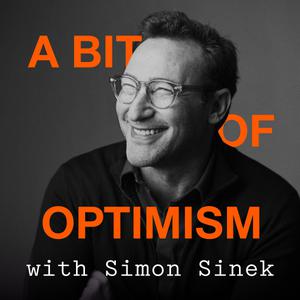 A Bit of Optimism
A Bit of Optimism
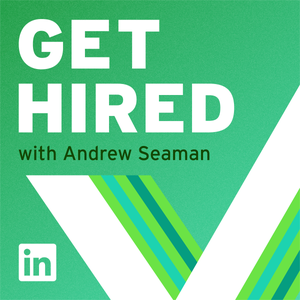 Get Hired with Andrew Seaman
Get Hired with Andrew Seaman
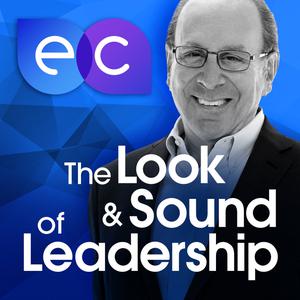 The Look & Sound of Leadership
The Look & Sound of Leadership